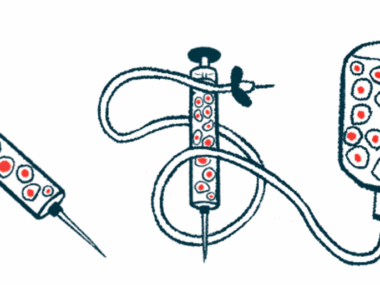FDA OKs Parkinson’s clinical trial to test NouvNeu001 cell therapy
Iregene developing treatment for patients with moderate to advanced disease
Written by |

The U.S. Food and Drug Administration (FDA) has given Iregene Therapeutics the green light to launch a clinical trial testing its cell therapy NouvNeu001, being developed for moderate to advanced Parkinson’s disease.
According to the company, this marks a significant milestone, with NouvNeu001 becoming the world’s first chemically induced cell therapy to enter clinical trials for Parkinson’s disease in the U.S.
The therapy is now being tested in a Phase 1/2 clinical trial (NCT06167681) in China, which started in early January after winning approval from the National Medical Products Administration (NMPA), the country’s regulatory agency.
“Dual approval of [investigational new drug] applications of NouvNeu001 by the U.S. FDA and China NMPA further boosts the confidence of iRegene’s global team in building a world-class innovative platform,” Wei Jun, PhD, CEO of Iregene, said in a company press release.
Clinical trial in China now testing novel Parkinson’s treatment
Parkinson’s disease is caused by the dysfunction and death of dopaminergic neurons — nerve cells responsible for producing dopamine, a brain signaling molecule essential for muscle control. The loss of these neurons impairs dopamine signaling in the brain, and leads to the disease’s symptoms.
NouvNeu001 is a chemically induced human dopaminergic neuron precursor (DNP) for the treatment of Parkinson’s disease. DNPs are cells capable of developing into dopaminergic neurons, which play a crucial role in movement control. These cells are delivered directly into the brain’s striatum, a region responsible for voluntary movement control, which is adversely affected in Parkinson’s patients, via a guided intracerebral injection.
Derived from induced pluripotent stem cells, DNPs have the potential to differentiate into various cell types, including neurons. Following a transplant, the DNPs differentiate into new dopaminergic neurons, forming connections with existing neurons and enhancing dopamine release.
On the basis of cautious and robust R&D efforts, iRegene aims to leverage its innovative technologies to bring breakthroughs for a multitude of currently incurable diseases, bringing hope to patients and families deeply affected by these conditions.
Preliminary results from the Phase 1 part of the ongoing trial in China demonstrated that the treatment was generally safe, with no reported cell therapy-related adverse effects. Moreover, treated patients showed consistently significant improvements in motor function, as assessed by the Movement Disorder Society-Unified Parkinson’s Disease Rating Scale (MDS-UPDRS) Part III (motor) scores.
The trial also will assess changes in patients’ nonmotor symptoms, including depression, anxiety, sleep, and quality of life. Further, it will evaluate the treatment’s effects on Parkinson’s disease severity and in patients’ off time — periods when medication effects wear off and symptoms return — up to five years after the transplant. Long-term safety and tolerability also will be assessed.
Given the positive preliminary efficacy and safety data from this study, Iregene now plans to start recruiting patients for another clinical trial, also in China, that will test NouvNeu003, its early-onset Parkinson’s disease product. That trial already has been cleared by the NMPA.
“On the basis of cautious and robust R&D efforts, iRegene aims to leverage its innovative technologies to bring breakthroughs for a multitude of currently incurable diseases, bringing hope to patients and families deeply affected by these conditions,” Jun said.



